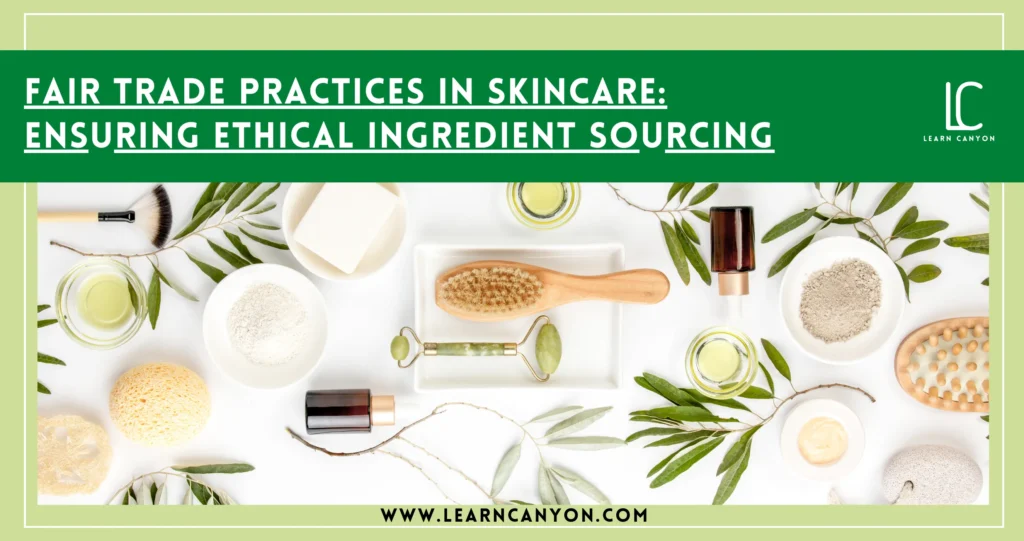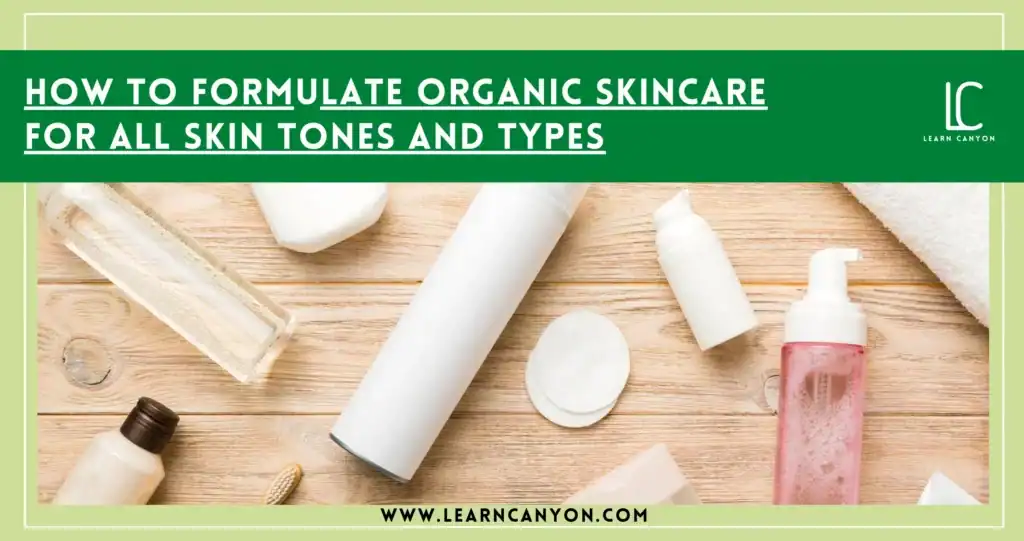Consumers are becoming increasingly aware of the ethical implications of their skincare purchases, leading to a growing demand for fair trade practices.
Fair trade practices in skincare involve ensuring that the ingredients used in products are sourced ethically, with fair wages and working conditions for farmers and labourers. This includes using organic and sustainably sourced ingredients and transparency in the supply chain.
Ethical ingredient sourcing is a crucial aspect of fair trade practices in skincare, as it ensures that the workers involved in producing the ingredients are treated fairly and are not exploited. By prioritizing fair trade practices, skincare companies can support sustainable farming practices and contribute to the economic empowerment of communities in developing countries.
This article will explore the importance of fair trade practices in the skincare industry and how consumers can make informed choices to support ethical ingredient sourcing.
Understanding Fair Trade Practices
Fair trade practices refer to a set of principles and standards aimed at promoting equitable and sustainable trade relationships. These practices ensure that producers, particularly in developing countries, receive fair compensation for their work, operate under safe and fair working conditions, and engage in environmentally sustainable production methods.
Key aspects of fair trade practices include:
- Fair Wages: Ensuring that producers and workers are paid fairly for their labour, which helps to improve their standard of living and economic stability.
- Safe Working Conditions: Providing safe and healthy working environments, free from exploitation and discrimination.
- Environmental Sustainability: Promoting environmentally friendly farming and production practices to ensure long-term sustainability and reduce ecological impact.
- Community Development: Supporting community development initiatives, such as education, healthcare, and infrastructure improvements, to benefit the entire community.
- Transparency and Accountability: Maintaining transparent and accountable business practices to ensure that all stakeholders are informed and can trust the trade relationships.
- Empowerment of Producers: Empowering producers by giving them a voice in the decision-making process and helping them to build capacity and improve their businesses.
What Does It Mean In Skincare?
Fair trade practices in skincare involve implementing ethical standards in the sourcing, production, and distribution of skincare products. These practices ensure that the ingredients used are obtained in a manner that respects the rights of workers, promotes environmental sustainability, and supports the well-being of local communities in skincare industry as a whole.
History Of Fair Trade Practices And Its Evolution In Skincare Industry
Early Beginnings:
- 1940s-1950s: The concept of fair trade began to take shape after World War II. Initially, it was a movement led by non-governmental organizations and religious groups aiming to create equitable trading partnerships between developed and developing countries.
- 1960s: Organizations such as Ten Thousand Villages and Oxfam began selling handicrafts and other products from developing countries, focusing on fair producer compensation.
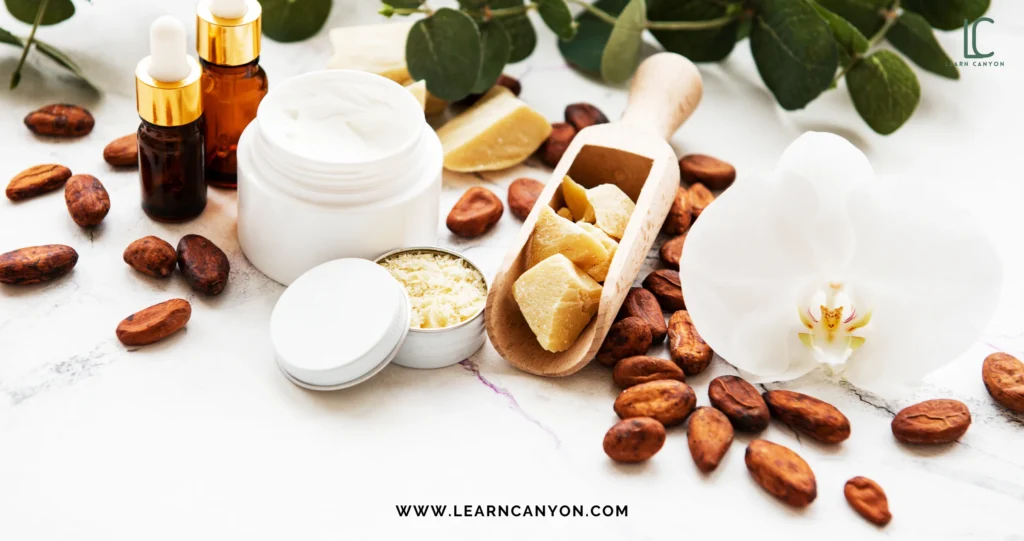
Expansion to Various Sectors
- 1990s: Fair trade practices expanded beyond coffee and handicrafts to include other commodities like tea, chocolate, and fresh produce. Fairtrade International’s (FLO) establishment helped standardise fair trade certification across different products and regions.
- Late 1990s – Early 2000s: The fair trade movement started to influence the skincare industry. Pioneering companies began sourcing ingredients like shea butter, cocoa butter, and coconut oil from fair trade certified cooperatives, ensuring the ethical treatment of workers and sustainable farming practices.
Evolution in the Skincare Industry
- 2000s: The rise of consumer awareness about ethical and sustainable products led to increased demand for fair trade skincare. Companies began to highlight their fair trade practices in marketing and packaging, educating consumers about the benefits of ethical sourcing.
- The mid-2000s: Major skincare brands and retailers began to adopt fair trade principles, expanding the range of fair trade skincare products available in the market. Certification bodies like Fair Trade USA and Fair for Life provided third-party verification of fair trade claims, enhancing consumer trust.
- Late 2000s: The emergence of smaller, niche skincare brands dedicated exclusively to fair trade practices helped to further popularize the movement. These brands often focused on transparency, sustainability, and direct trade relationships with producers.
The Importance of Ethical Ingredient Sourcing In Skincare
What does “ethical” mean?
How do you determine if an item is ethical?
Is it really necessary to think about ethics when it comes to beauty? Learn Canyon is available to address these issues and more!
The word ethical refers to problems of right and wrong. Yet, like other marketing words used in the beauty business, this term is not regulated, making it difficult for consumers to determine which claims to believe.
Learn Canyon believes that ethical skincare includes both people and the world. We are responsible for being aware of how all life is handled and accountable for the effects our decisions have on wildlife, the natural world, local communities, and labour. This includes ensuring that people’s occupations are safe and fair, biodiversity is conserved, animals are not injured and customers’ health is not jeopardised.
The Implications of Unethical Sourcing
Unethical procurement of resources used in cosmetics production can result in a variety of effects, notably environmental degradation and human rights violations.
Environmental degradation might involve the use of non-renewable resources or the improper disposal of dangerous items.
Human rights violations can involve the exploitation of labourers and other vulnerable populations, such as children, in the industrial process.
Benefits Of Ethical Ingredient Sourcing;
To emphasise the necessity of ethical ingredient sourcing, here are some significant benefits:
- Increased trust: Ethical sourcing fosters consumer trust, which increases brand loyalty.
- Improved quality: Because of the tight standards that are enforced throughout the supply chain, products created from ethically sourced ingredients are of higher quality.
- Positive social impact: Promoting fair trade practices helps to raise communities out of poverty while respecting human rights.
- Environmental responsibility: Ethical sourcing encourages sustainable farming practices while mitigating environmental damage caused by irresponsible production procedures.
Key Ingredients in Skincare and Their Ethical Sourcing
When discussing key ingredients in skincare and their ethical sourcing, it’s important to consider both the efficacy of these ingredients and the ethical implications of their production.
Here are some common skincare ingredients, their benefits, and considerations regarding their ethical sourcing:
1. Hyaluronic Acid
Benefits:
- Hydration: Holds up to 1,000 times its weight in water, making it an excellent hydrating agent.
- Plumping: Helps reduce the appearance of fine lines and wrinkles.
Ethical Sourcing:
- Traditionally sourced from animal tissues, synthetic and plant-based alternatives are now available.
- Look for vegan and cruelty-free certifications to ensure ethical sourcing.
2. Vitamin C (Ascorbic Acid)
Benefits:
- Brightening: Helps reduce hyperpigmentation and evens out skin tone.
- Antioxidant: Protects skin from free radical damage.
Ethical Sourcing:
- Derived from citrus fruits or synthesized in labs.
- Ensure that the sourcing of citrus fruits does not involve harmful pesticides and that farming practices are sustainable.
3. Retinol (Vitamin A)
Benefits:
- Anti-ageing: Promotes cell turnover and collagen production.
- Acne treatment: Helps clear clogged pores.
Ethical Sourcing:
- Often synthesized in laboratories.
- Check for cruelty-free certifications to ensure no animal testing is involved.
4. Niacinamide (Vitamin B3)
Benefits:
- Anti-inflammatory: Helps reduce redness and blotchiness.
- Regulates oil production: This can improve the appearance of enlarged pores.
Ethical Sourcing:
- Typically synthesized in laboratories.
- Ensure the company practices ethical manufacturing processes.
5. Squalane
Benefits:
- Moisturizing: Mimics skin’s natural oils, providing deep hydration.
- Non-comedogenic: Suitable for all skin types, including oily and acne-prone skin.
Ethical Sourcing:
- Originally derived from shark liver oil, but now more commonly sourced from plants (e.g., olives, sugarcane).
- Look for plant-based squalane to avoid supporting the fishing industry.
6. Shea Butter
Benefits:
- Moisturizing: Rich in fatty acids and vitamins.
- Anti-inflammatory: Helps soothe irritated skin.
Ethical Sourcing:
- Typically sourced from the nuts of the shea tree in Africa.
- Ensure fair trade practices and support cooperatives that empower local communities.
7. Aloe Vera
Benefits:
- Soothing: Helps calm irritated skin.
- Hydrating: Provides moisture without a greasy feel.
Ethical Sourcing:
- Grown in tropical and subtropical regions.
- Ensure sustainable farming practices and fair labour conditions.
8. Green Tea Extract
Benefits:
- Antioxidant: Protects skin from environmental damage.
- Anti-inflammatory: Helps reduce redness and irritation.
Ethical Sourcing:
- Sourced from green tea leaves.
- Look for organic and fair trade certifications to ensure sustainable farming and ethical labour practices.
9. Rosehip Oil
Benefits:
- Rich in essential fatty acids and antioxidants.
- Helps improve skin texture and tone.
Ethical Sourcing:
- Extracted from the seeds of wild rose bushes.
- Ensure sustainable harvesting and fair labour practices.
10. Ceramides
Benefits:
- Skin barrier repair: Helps restore the skin’s natural barrier.
- Moisturizing: Retains moisture in the skin.
Ethical Sourcing:
- Typically synthesized in laboratories.
- Look for cruelty-free ingredients and vegan certifications.
Ethical Certifications to Look For:
- Fair Trade: Ensures fair wages and working conditions for workers.
- Cruelty-Free: No animal testing was involved in the production.
- Vegan: Contains no animal-derived ingredients.
- Organic: Ingredients are grown without synthetic pesticides.
- Sustainable: Practices that do not harm the environment or deplete natural resources.

How to Ensure Fair Trade Practices in Skincare Products
Here’s a guide to help you ensure the products you use adhere to fair trade principles:
1. Look for Certifications
Certifications are one of the most reliable ways to ensure that skincare products are made following fair trade practices. Some important certifications to look for include:
- Fair Trade Certified: This ensures that the products meet rigorous social, environmental, and economic standards.
- Certified B Corporation: B Corps meet high standards of social and environmental performance, transparency, and accountability.
- Rainforest Alliance Certified: This certification promotes sustainable agriculture and forestry.
- Leaping Bunny or Cruelty-Free Ingredients Certifications: While not directly related to fair trade, these certifications ensure no animal testing, which often aligns with ethical practices.
2. Research the Brand
Investigate the brand’s commitment to fair trade and ethical practices. Look for information on their website about their sourcing and manufacturing processes. Brands that prioritize ethical practices often share detailed information about their supply chains and the steps they take to ensure fair labour practices.
3. Read Ingredient Labels
Understand where ingredients are sourced. Some cruelty-free ingredients, like shea butter, cocoa butter, and argan oil, are more commonly associated with fair trade certifications. Ensure that these ingredients come from fair trade sources.
4. Support Brands with Transparent Supply Chains
Choose brands that provide transparency about their supply chains. Companies that disclose where and how they source their ingredients are often more committed to fair trade practices.
5. Check for Ethical Sourcing Programs
Many brands participate in programs that ensure ethical sourcing. For example:
- Lush: Known for its commitment to ethical buying, Lush sources ingredients from suppliers who adhere to strict environmental and labour standards.
- The Body Shop: This brand has a Community Fair Trade program that supports fair trade practices across various ingredients.
6. Evaluate Company Policies
Review the company’s corporate social responsibility (CSR) policies. Companies with strong CSR policies are often more committed to ethical practices, including fair trade.
7. Consider the Entire Supply Chain
Ensure that not only the ingredients but also the packaging and other aspects of the product are sourced ethically. Sustainable packaging and environmentally friendly practices often go hand-in-hand with fair trade principles.
8. Use Ethical Marketplaces
Support marketplaces that focus on fair trade and ethical products. Websites like Fair Trade USA and Ethical Consumer provide resources and listings of fair trade products.
Challenges in Implementing Fair Trade Practices
Here are some of the primary challenges:
1. Complex Supply Chains
Skincare products often contain numerous ingredients sourced from different parts of the world. Ensuring fair trade practices across the entire supply chain can be difficult due to:
- Multiple Suppliers: Ingredients may come from various suppliers, each with different labour practices.
- Lack of Transparency: It can be challenging to trace ingredients back to their source, especially if they pass through several intermediaries.
- Varying Standards: Different countries have different regulations and standards regarding labour practices and environmental sustainability.
2. Cost Implications
Fair trade practices often involve higher costs due to fair wages, ethical sourcing, and sustainable practices. These costs can affect:
- Production Costs: Paying fair wages and ensuring ethical practices can increase production costs.
- Pricing: Higher production costs may lead to higher product prices, which can be a barrier for some consumers.
- Certification Costs: Obtaining fair trade certifications can be expensive and time-consuming for companies.
3. Consumer Awareness and Demand
Fair trade products require consumer support, but there are challenges related to:
- Lack of Awareness: Many consumers are not fully aware of what fair trade means or its importance.
- Price Sensitivity: Consumers may be unwilling to pay a premium for fair trade products.
- Misinformation: There is a risk of “greenwashing,” where companies make misleading claims about their ethical practices.
4. Regulatory and Certification Challenges
Obtaining and maintaining fair trade certification involves:
- Stringent Criteria: Meeting the rigorous standards required for fair trade certification can be challenging for small producers.
- Monitoring and Compliance: Ensuring continuous compliance with fair trade standards requires regular monitoring and audits, which can be resource-intensive.
5. Scale and Scope
Implementing fair trade practices across large, multinational companies poses unique challenges:
- Consistency: Maintaining consistent fair trade practices across all operations and regions can be difficult.
- Supplier Relationships: Large companies often have established relationships with suppliers, and transitioning to fair trade suppliers can be complex.
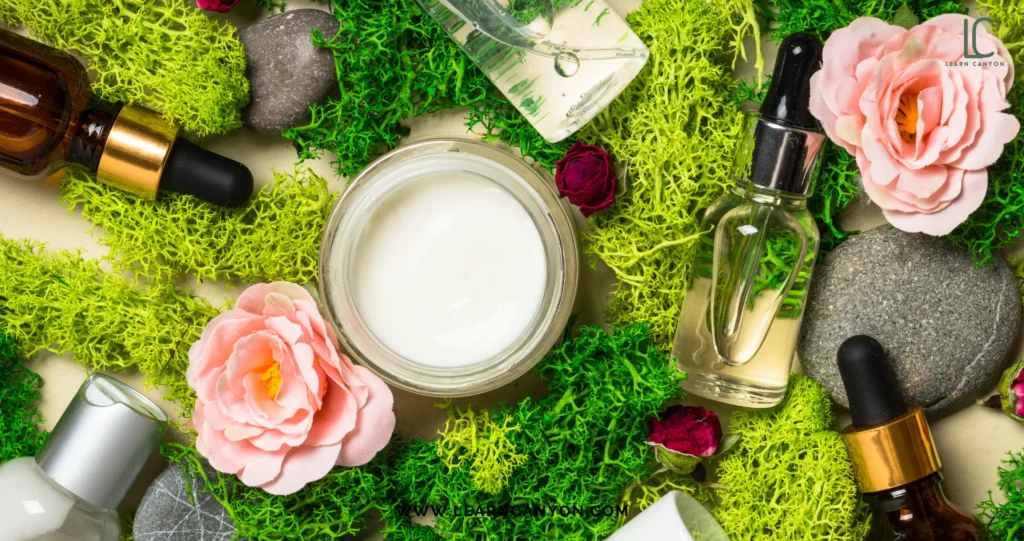
Leading Brands and Their Fair Trade Practices
Here are some examples of how these top skincare brands using fair trade ingredients in their operations and the impact of their initiatives:
1. The Body Shop
Fair Trade Initiatives:
- Community Fair Trade Program: The Body Shop’s Community Fair Trade program sources ingredients from marginalized communities around the world. They have partnerships with over 30 suppliers in 23 countries.
- Shea Butter: The brand sources shea butter from Ghana, working with women’s cooperatives. This initiative provides fair wages and supports community development projects.
- Aloe Vera: The Body Shop sources organic aloe vera from farmers in Mexico, ensuring fair trade practices and sustainable farming methods.
Impact Stories:
- Ghana: The Body Shop’s partnership with the Tungteiya Women’s Shea Butter Association has helped provide fair wages and improve living standards for over 500 women in northern Ghana.
- Mexico: Their collaboration with the Campeche Farmers’ Cooperative ensures fair trade in aloe vera production, supporting local farmers and promoting environmental sustainability.
2. Lush
Fair Trade Initiatives:
- Ethical Buying Policy: Lush sources ingredients based on strict ethical criteria, including fair wages, safe working conditions, and sustainable practices. This is one of the top skincare brands using fair trade ingredients.
- Fair Trade Shea Butter: Lush sources fair trade shea butter from women’s cooperatives in Ghana, supporting fair wages and community development.
- Fair Trade Cocoa Butter: The brand sources fair trade cocoa butter from farmers in the Dominican Republic, ensuring fair labour practices and sustainable agriculture.
Impact Stories:
- Ghana: Lush’s Fair Trade Shea Butter initiative provides financial independence to women and funds social projects such as schools and health clinics.
- Dominican Republic: The fair trade cocoa butter initiative supports sustainable farming practices and improves the livelihoods of small-scale farmers.
3. SheaMoisture
Fair Trade Initiatives:
- Community Commerce Program: SheaMoisture’s Community-Commerce program sources fair trade shea butter from women’s cooperatives in northern Ghana.
- Women’s Empowerment: The brand invests in initiatives that support women’s education, healthcare, and business development.
Impact Stories:
- Ghana: SheaMoisture’s fair trade shea butter initiative empowers women by providing fair wages, funding education, and supporting local businesses. The program impacts over 14,000 women and their families.
Future Of Fair Trade Practices In Skincare
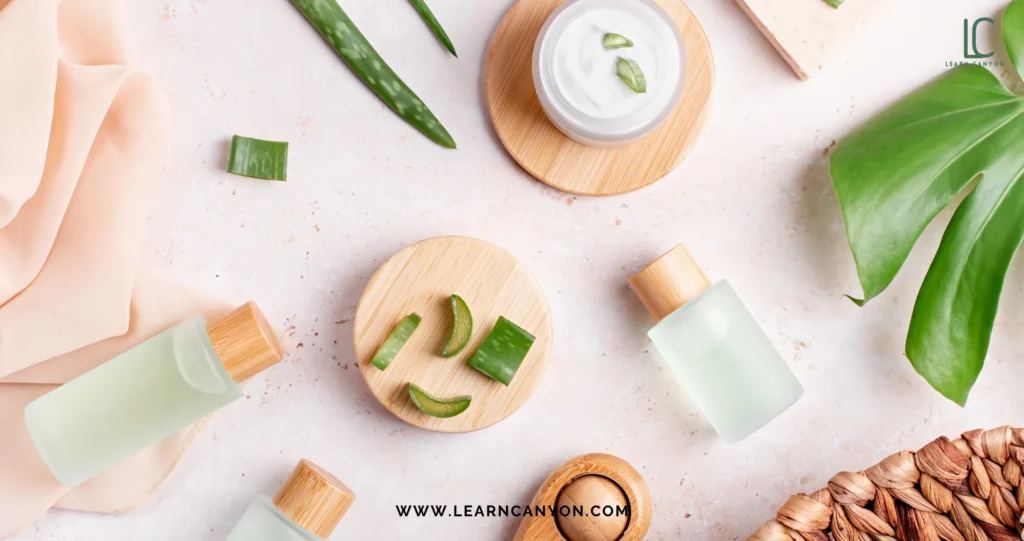
1. Increased Consumer Awareness and Demand
- Educated Consumers: With the rise of social media and access to information, consumers are becoming more aware of the ethical implications of their purchases. They are increasingly seeking out brands that align with their values.
- Transparency and Storytelling: Brands that share transparent stories about their sourcing and the impact of their fair trade initiatives will likely attract more customers.
2. Technological Advancements in Supply Chain Transparency
- Blockchain Technology: Blockchain can provide immutable records of product sourcing, ensuring transparency and traceability throughout the supply chain.
- Digital Platforms: Apps and online platforms can offer consumers detailed information about the origin of ingredients, the conditions under which they were produced, and the impact of their purchases.
3. Expansion of Fair Trade Certifications
- More Inclusive Certifications: The development of certifications that encompass broader ethical practices, including environmental sustainability and social responsibility, will gain traction.
- Recognition of Small Producers: Certifications that are accessible to small-scale farmers and producers will help include more stakeholders in the fair trade movement.
4. Integration of Sustainable Practices
- Regenerative Agriculture: Emphasis on regenerative agricultural practices that restore soil health, enhance biodiversity, and sequester carbon will become more prevalent in fair trade sourcing.
- Eco-Friendly Packaging: Sustainable and biodegradable packaging solutions will be adopted alongside fair trade practices to reduce the overall environmental impact.
5. Corporate Social Responsibility (CSR)
- Holistic Approaches: Companies will adopt more holistic CSR strategies that integrate fair trade with other ethical practices such as carbon neutrality, waste reduction, and social equity.
- Partnerships and Collaborations: Collaborations between brands, NGOs, and governments will help create stronger, more sustainable supply chains and support fair trade initiatives.
Final Thoughts,
Fair trade practices in skincare are essential for ensuring ethical ingredient sourcing. By supporting fair trade brands, consumers can contribute to the well-being of producers and the environment, fostering a fairer and more sustainable world. As the industry progresses, continued efforts to overcome challenges and embrace technological advancements will further solidify fair trade as a standard practice in skincare, aligning business success with social and environmental responsibility.
Here at Learn Canyon, we are mindful enough to understand ethical ingredient sourcing at a deeper level and how it can affect cosmetic formulations and the desired outcomes on the skin when applied.
We are sure the ingredients used in our labs are cruelty-free and vegan in every batch we formulate. If you are someone looking to learn organic cosmetic formulation by using our well-curated strategies then do not hesitate to enroll. We have you covered up!




